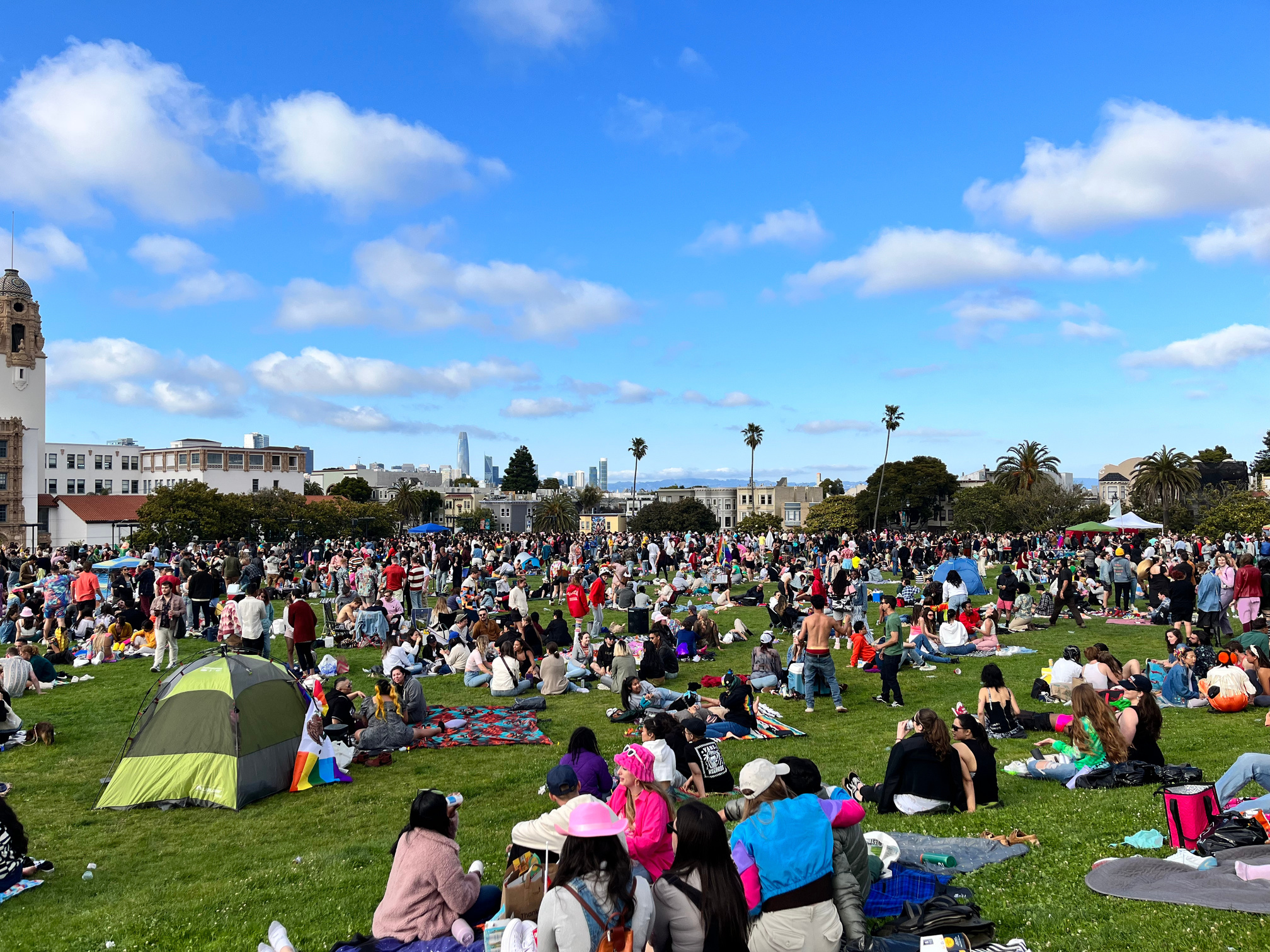
This was a photo I took at SF Pride 2023.
The Queer Asian Experience
The Queer Asian Experience
charisse liu
charisse liu
introduction
introduction
My name is Charisse Liu and this is my final research project for ASAMST 20AC Summer 2022. My topic is on the queer Asian-American community and the unique experiences they navigate. As someone who identifies as both queer and Asian-American, I recognize that there is a lack of dialogue that has led to a limited understanding of the AAPI LGBTQ+ experience. Please note that I will focus mostly on East Asians in order to not make my topic too broad, because different Asian ethnicities have different experiences. By exploring this, I hope to shed light on the complexities of our identities and foster a more nuanced understanding.
I will begin by providing statistics on the queer Asian community and the issues that they encounter. I will then touch on AAPI LGBT history by highlighting two Asian activists that have contributed to queer history: Christopher Lee and Dan Choi. Next, I will focus on the portrayal of queerness and Asian identity in contemporary culture by showcasing notable figures who identify as both queer and Asian. I will also conduct interviews with Marissa Lee, Ashleigh Abe, and Ally Huang, three queer Asians from my community, on their experiences with queer Asian intersectionality. Then, I will discuss the intersectionality of being queer and Asian and how it impacts people both in the spotlight as queer Asians and in my own community. Through these various avenues of exploration, I aim to create a comprehensive and enlightening discussion on the issues and experiences of queer Asians. By amplifying their voices and sharing their stories, I hope to foster greater understanding, acceptance, and celebration of the queer Asian community.
some background
statistics
statistics
685k
AAPI LGBT adults living in the US
73%
of AAPI LGBT adults are under 35
21%
of AAPI LGBT adults are diagnosed
with depression, compared to
7%
of AAPI non-LGBT adults diagnosed
with depression
issues the community faces by gender
issues the community faces by gender
Male-identifying:
There is a misconception that Asian-American men are more likely to be gay due to the way that Asians are stereotypically perceived as passive, subservient, and feminine. In order to be accepted by other gay people, they often find themselves compelled to either reject these perceptions by presenting themselves as extremely masculine and dominant, or to conform to the stereotype of a passive, feminine gay man. They are subject to a black-and-white binary, leaving no room for an intermediate identity for gay Asian men.
Gay Asian men encounter a unique challenge within the queer community, where they are welcomed but not desired. Many gay men have shared their experiences of being included in queer spaces but finding that few queer individuals are interested in dating them, except for "rice queens" - white gay men who objectify and fetishize Asian men.
40%
of AAPI LGBT youth seriously considered suicide in the past year
16%
of AAPI LGBT youth attempted suicide in the past year
41%
of AAPI LGBT youth were not out to at least one parent about their sexual orientation, compared to
29%
of the overall sample of LGBT youth
Non-male identifying:
While gay Asian-American men may have some representation (albeit problematic) in society, the same cannot be said for Asian-Americans who like non-men. Asian-American lesbians often face harmful stereotypes that portray them as either asexual or hypersexualized objects who exist solely to serve men. These stereotypes stem from the perception of Asians as feminine and submissive, which further limits the possibility of challenging sexual norms and embracing queerness for Asian women. This is particularly pronounced for those who present themselves as more masculine.
Even if Asian-American lesbians manage to find acceptance in white spaces, they may still be regarded as the "token Asian," having their sexuality overshadowed by their race.
Additionally, there is an assumption that gay Asian men are more likely to assume a submissive role (bottom) during sexual encounters due to stereotypes associated with their perceived feminine nature.
LGBTQ+ Asian Americans not only confront unique challenges related to their sexual orientation or gender identity but also encounter similar issues faced by the broader Asian American community, such as immigration rights. Queer Asian Americans may prioritize different concerns compared to their white counterparts, who may concentrate more on queer-specific issues due to the absence of racial legislative concerns.
There is also a lack of translated HIV prevention and care information available in non-English languages, creating barriers for immigrants to access and address these healthcare resources.
Additionally, queer Asians are more susceptible to mental health issues due to a sense of inadequate understanding and acceptance of their identities. They often face the burden of navigating multiple cultural and societal expectations, which can create feelings of isolation and alienation. The lack of representation and visibility of queer Asian role models and spaces can contribute to a sense of not fully belonging or being understood, which can affect mental health.
some important queer asian activists...
Christopher Lee
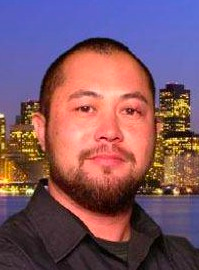
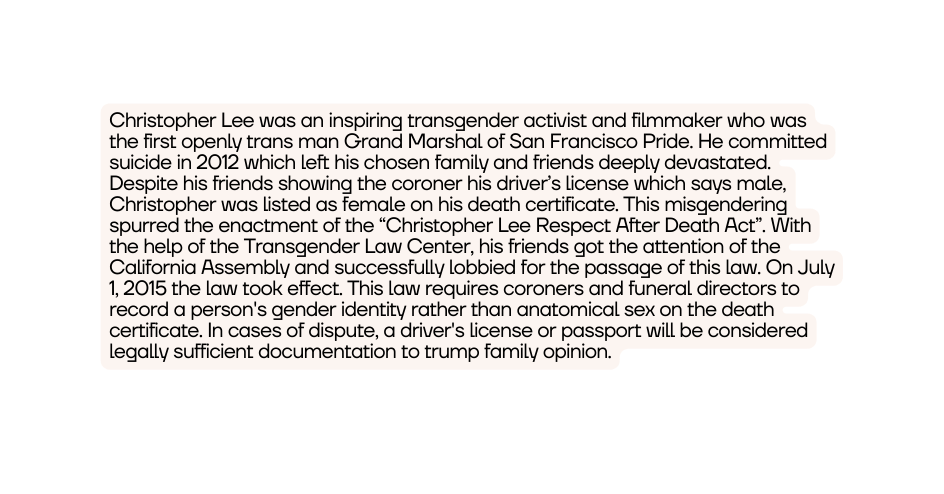
Dan Choi
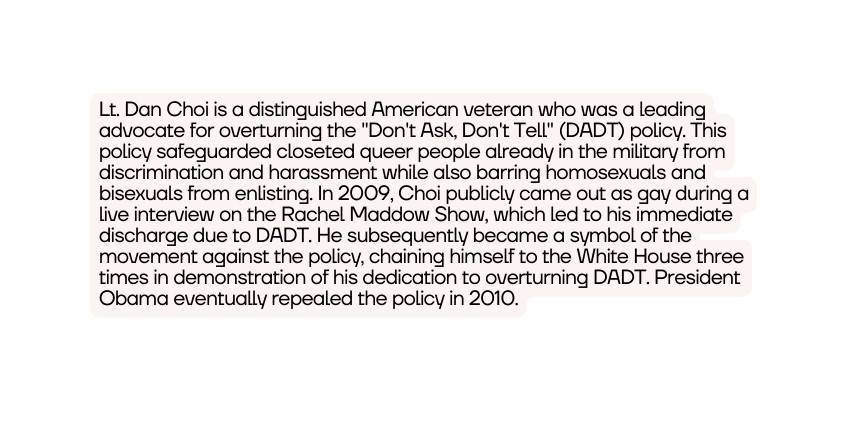
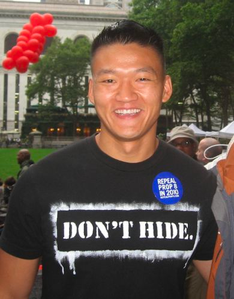

contemporary culture
contemporary culture

Hayley Kiyoko is a lesbian Japanese-American singer, actress and songwriter. Her breakthrough as a queer artist was the single and LGBT-anthem "Girls Like Girls". She is known as Lesbian Jesus to her fans. She has released four EPs and one album, Expectations. Although she has always felt in touch with her sexuality, Kiyoko says it wasn't until she got older that she was able to really tap into her Japanese heritage.
“For most of my adolescence, my sexuality kind of took over my struggle with fitting into society, and then as I was able to learn and accept myself, later in life, I started to unpack my culture and my roots.
I just didn't really have the space to do so when I was younger, because I was just extremely gay and I didn't have an outlet or felt like I had a community that I belonged to, and so that really took over most of my youth."
-Hayley Kiyoko

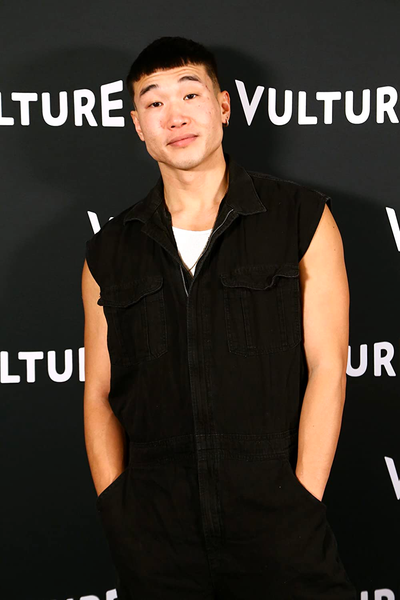
Joel Kim Booster is a gay Korean-American actor, comedian, producer, and writer. He co-produced and wrote for Big Mouth and The Other Two. In 2022, he wrote, produced, and starred in the Hulu romantic comedy Fire Island. Kim Booster was adopted and grew up in a white family, which led to a lifelong search for identity. In interviews, he has jokingly stated that he knew he was gay before he knew he was Asian.
“When you exist at the intersection of a lot of different identities, like I do, you’re always trying to triangulate ... . It’s a very complicated calculus you have to do everyday. Are they coming to me because I’m gay, or because I’m Asian, or because I’m gay and Asian?
I try not to focus on the day-to-day, but let’s face it, Asian men are treated differently than White men, gay men are treated differently than straight men, and Asian gay men are treated differently as well. There are many different ways to exist when you’re at this intersection, but I’m proud of who I am, and I don’t plan on changing for anybody.”
-Joel Kim Booster
meet my interviewees!
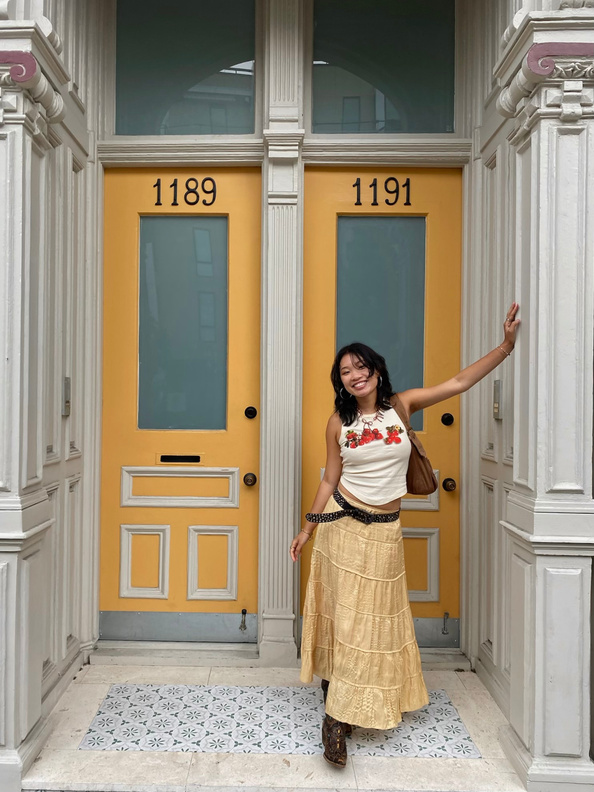
Marissa Lee, she/her
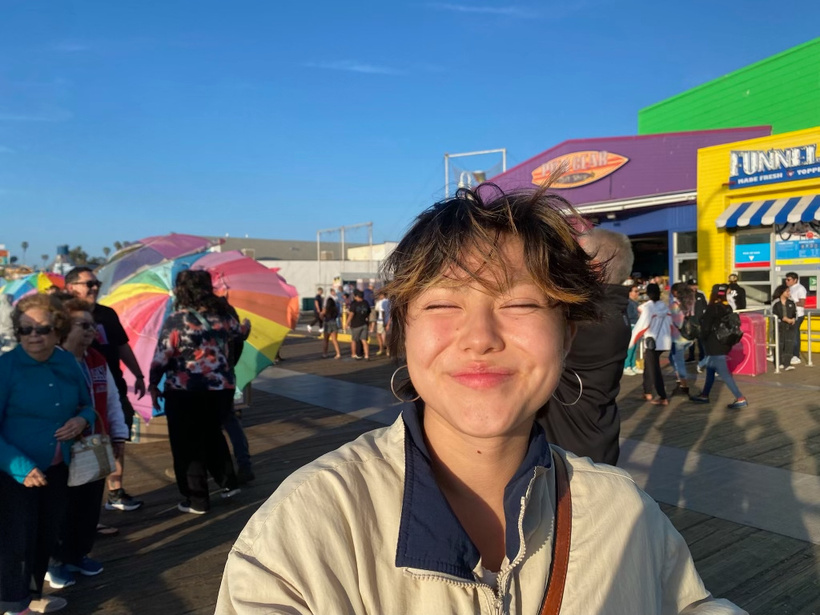
Ashleigh Abe, they/them
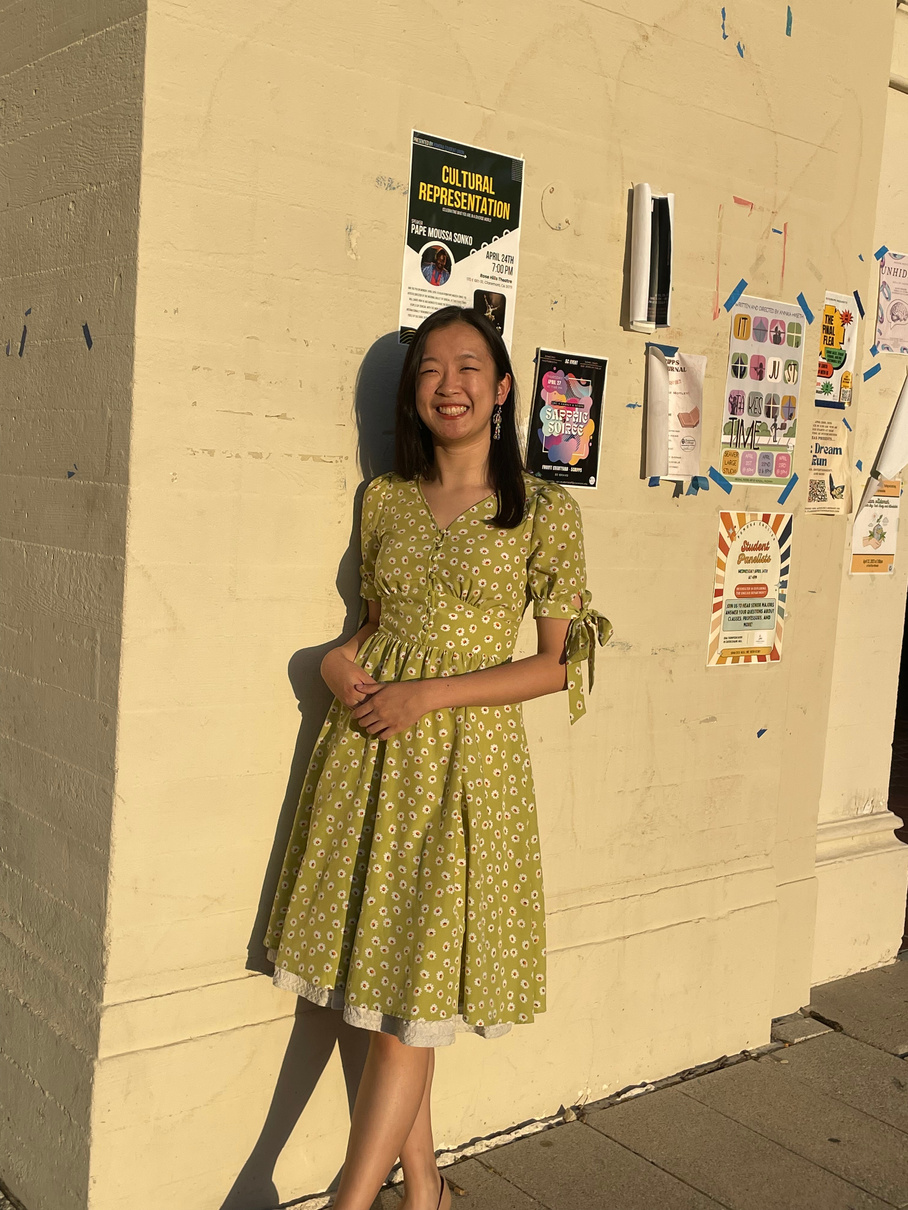
Ally Huang, she/her
Question 1: What unique challenges do you think queer Asian-Americans face?
Marissa Lee
Ashleigh Abe
Ally Huang: I think a lot of Asian countries still have cultures that promote homophobia or offer no legal protections for queer individuals. As a result, a lot of the cultural values that my parents (who are mainland Chinese) grew up with are slow to unlearn even after living in the US for many years. China places great emphasis upon filial piety and traditional nuclear family structures, which often feels like it extends into heteronormativity. As a queer Chinese American women, I fear that my parents would not accept the queer side of my identity. Even if I were able to express this side of myself in the United States, I know that if I would have to hide it in China and not be able to love who I want freely. Some might even view it as a symbol of modern Western influence, rather than something that has existed in every culture’s history. Additionally, I think that queer spaces and communities in the United States often center white people and their voices, without consideration for intersectionality and how Asian Americans and other queer people of color have to face an entirely different set of obstacles that may not be understandable to white queer people even if they have faced some kinds of oppression. Recent years have seen more Asian American and queer representation, but we still lack seeing people who embody both identities, often leading to feelings that queer people have no space in Asian communities and Asian people have no space in queer communities.
Question 2: Do you feel more aligned with your racial identity or your sexuality or both equally? Why do you think so?
Marissa Lee
Ashleigh Abe
Ally Huang: I feel more aligned with my racial identity. Growing up in different countries, I became aware of the ways in which my visual appearance (in which I am clearly East Asian) would lead to certain reactions or treatment from others. I don’t believe I visually express my queerness as much, and it isn’t something that can be instantly assumed by walking past me on the street. As a result, I’m used to being identified and judged for my race, first and foremost. Additionally, I discovered my own sexuality while still living in China. While my high school had a queer club, the rest of the country’s culture is far less inclusive, so I never tried to highlight that aspect of myself and would not bring it up unless addressed. Coming to college in California was the first time I truly opened up about my sexuality and voluntarily gave that information about myself to others. Where I originate from and who I love are both important facets of my identity, but I tend to identify more with the former because it is what primarily affects how other people perceive me. Also, labels for sexuality are something I’ve only grappled with in the past 6 years (and am still grappling with today), while I’ve been aware of my Asianness all my life.
intersectionality
The presence of intersectionality means that people may encounter overlapping forms of discrimination and marginalization based on various aspects of their identity, such as race, sexual orientation, and gender. This intersectional experience can create additional barriers and complexities in navigating personal and social spaces.
Intersectionality impacts people due to the distinct challenges experienced by queer Asian men and non-men, as mentioned earlier. Intersectionality can also make it feel as though one's multiple identities cannot coexist simultaneously.
A problem that queer Asians encounter is the tug-of-war between their racial identity and their sexuality. As stated by Asian America chapter 6,
“Asian Americans have had to choose whether to identify as Asian American or as LGBTQ, for each excludes the other.”
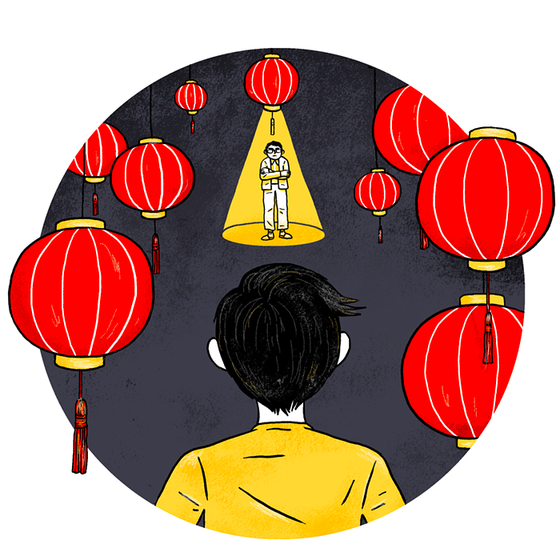

Gay Asian Americans are perceived to be more American than their straight counterparts because American culture is often perceived as more accepting and inclusive of queer individuals compared to some other cultural contexts. This judgment of increased American identity can also be perceived as a decrease in Asian identity or a negation of their ethnic background. This can be both good and bad, as gay Asian-Americans are probably less likely to have their American identity questioned, but being gay comes with its own set of problems.
There is a study by the journal Social Psychology and Personality Science that involved 345 adults who were recruited around the University of Washington campus. Participants were randomly assigned to read a description of a person named "John" who was identified as either "an Asian-American man" or "a gay Asian-American man."
After reading the description, participants were asked to answer nine questions about John that covered topics like his English fluency and level of integration into American culture. The results revealed that the version of John that was gay was perceived as significantly more American compared to the version where his sexual orientation wasn’t mentioned.
This study suggests that when John's sexual orientation was revealed as gay, it had an impact on how participants perceived his level of American-ness.
Intersectionality plays a significant role in shaping individuals' experiences by subjecting them to overlapping forms of discrimination and marginalization based on various aspects of their identity. This is particularly relevant for queer Asian men and non-men, who face distinct challenges, such as how their sexuality influences perceptions of cultural integration and American identity.
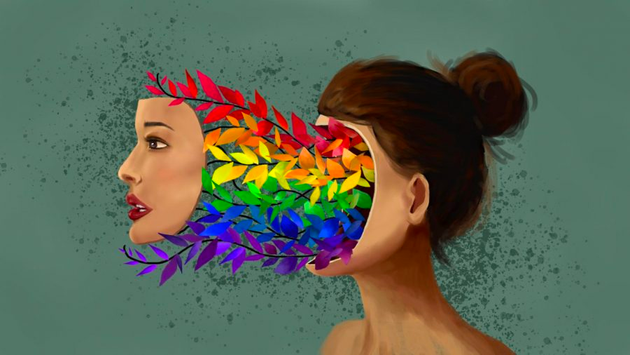

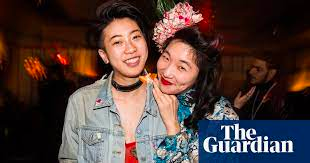

conclusion
conclusion
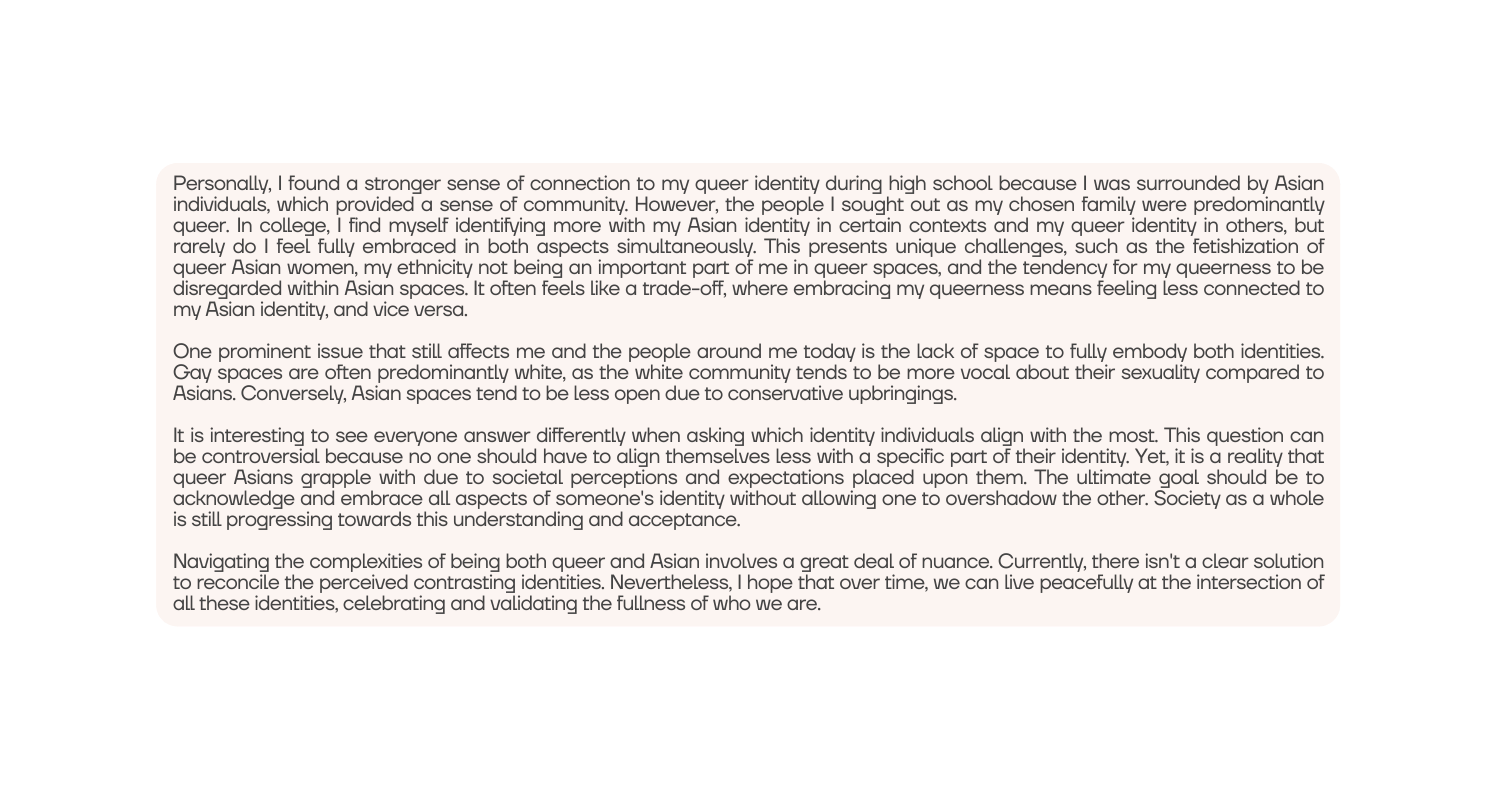
bibliography
bibliography
“AAPI LGBT Adults in the US - Williams Institute.” Williams Institute, https://williamsinstitute.law.ucla.edu/publications/lgbt-aapi-adults-in-the-us/. Accessed 19 June 2023.
Abe, Ashleigh.
“Dan Choi | LGBTHistoryMonth.com.” LGBT History Month, https://lgbthistorymonth.com/dan-choi?tab=biography. Accessed 26 June 2023.
Dhingra, Pawan, and Robyn Magalit Rodriguez. Asian America. Wiley, 2021.
Fu, Marissa.
Gatewood, J. V., and Min Zhou, editors. Contemporary Asian America (second Edition): A Multidisciplinary Reader. NYU Press, 2007.
Huang, Ally.
Jacobs, Tom. “Asian Americans Are Viewed as More American If They Are Gay.” Pacific Standard, 28 June 2019, https://psmag.com/news/asian-americans-are-viewed-as-more-american-if-they-are-gay. Accessed 24 June 2023.
Mier, Tomás. “Hayley Kiyoko Talks Embracing Her Asian Heritage.” People, 23 September 2021, https://people.com/music/hayley-kiyoko-on-asian-representation/. Accessed 26 June 2023.
Pham, Xoai. “Remembering Christopher Lee as Respect After Death Act takes effect.” Transgender Law Center, 7 July 2015, https://transgenderlawcenter.org/remembering-christopher-lee-as-respect-after-death-act-takes-effect/. Accessed 19 June 2023.
“Report: Asian American and Pacific Islander LGBTQ Youth Face Unique Mental Health Challenges, Increased Racial & Ethnic Discrimination.” The Trevor Project, 19 April 2022, https://www.thetrevorproject.org/blog/19463/. Accessed 24 June 2023.
Rocha, Michael James. “'Fire Island' star Joel Kim Booster on being gay and Asian: 'I'm proud of who I am.'” The San Diego Union-Tribune, 1 June 2022, https://www.sandiegouniontribune.com/entertainment/story/2022-06-01/fire-island-star-joel-kim-booster-on-being-gay-and-asian-im-proud-of-who-i-am. Accessed 26 June 2023.
“Series: LGBTQ America: A Theme Study of Lesbian, Gay, Bisexual, Transgender, and Queer History.” National Park Service, https://www.nps.gov/articles/series.htm?id=4DFF8155-1DD8-B71B-0B4C2713F34EA25C. Accessed 19 June 2023.